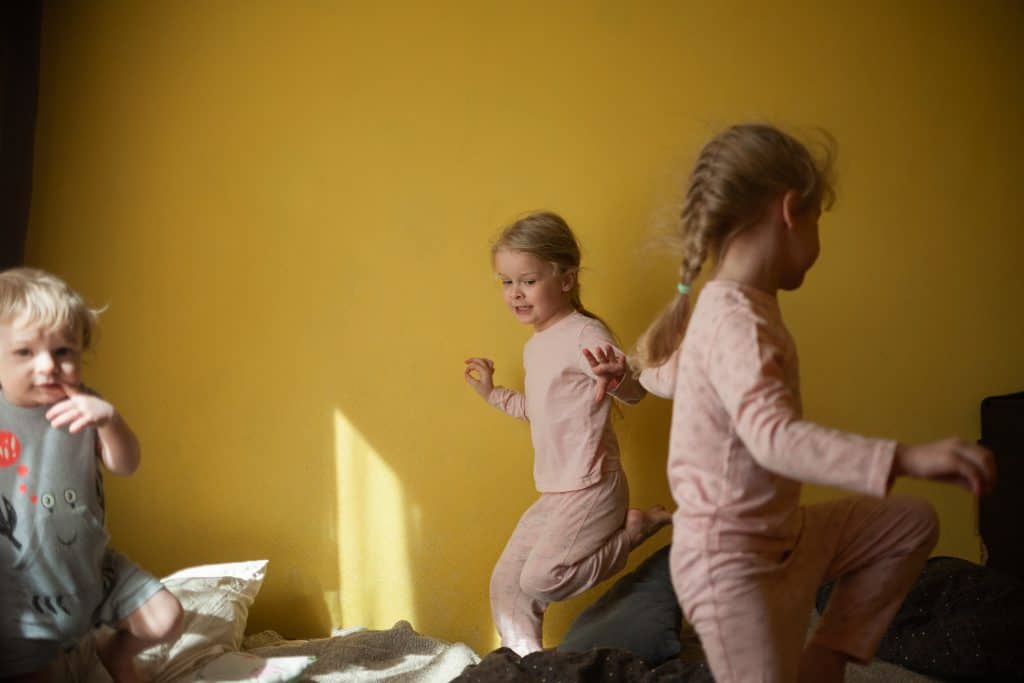One day, everything’s fine.
Then the next, a simple “hello” can trigger your teenager’s anger.
Parenting at this stage of a child’s development is a real challenge.
You never know what to expect or how your child will react to the simplest of reflections.
Did you sleep well?
And the teenager replies: “Just leave me alone! Why do you ask me tons of questions as soon as I open my eyes?
And that’s how a day that started out well turns into a nightmare.
A simple exchange of words becomes a declaration of war.
And why?
For a start, parents tend to forget their own rebellious years.
They forget that they too were susceptible and irritable at that age.
It’s an inevitable part of childhood development.
In adolescence, children need to detach themselves from their parents to take their first steps into adulthood.
And they feel that their parents are doing everything to control them.
Conflict arises from this distortion.
On the other hand, there are also parents who remember their teenage years extremely well, and are afraid that their children will follow the same path, jeopardizing their future.
In short, parents’ behavior is generally motivated by good intentions.
It’s just that teenagers aren’t yet capable of managing their emotions, and are facing new challenges.
Stress is at a peak for everyone.
But what are the most common conflicts during puberty?
And above all, how can you, as parents, manage them?
1. Parents used to be heroes, now they shame their children

At least, that’s how everyone feels.
Puberty is a state of emergency; after all, there’s no more extreme development in men and women than during adolescence.
In adolescence, attachment patterns and mindsets suddenly change.
Many conflicts ensue.
Children cannot question their love for their parents; they are unconditionally bound to their primary caregivers.
At puberty, this bond abruptly dissolves for the most part, and for teenagers, mother and father become normal people with many weaknesses.
If these former childhood heroes, demoted to normality, continue to insist on their authoritarian stance, mother and father only irritate their offspring.
Young people rebel, and parents are powerless.
This loss of attachment is also the reason why young people no longer confide in their parents.
Naturally, this frightens parents, who feel that their children are slipping away from them.
So parents experience a real loss of love and control through their children’s puberty.
To make matters worse, children’s puberty confronts parents with the unpleasant fact that they themselves are aging: sooner or later, they will have to step aside and make way for the new generation.
A frightening realization.
2. Drastic and unpredictable mood swings

It’s normal for teenagers to be thrilled and then sad to death, as their developmental tasks are enormous.
Leaving the protected family can bring fear and confusion.
What’s more, the latest huge growth spurt is exhausting, as the brain rebuilds itself anew and sexuality awakens thanks to the release of hormones.
Young people’s bad moods are usually not without reason anyway, only parents don’t really know where they come from.
Anyone who reacts calmly or humorously to a bad mood, who shows interest, learns a lot about the daily lives of young people, about happiness and sorrow, popular music and impossible party behavior.
Anyone who asks for clarification and answers like “are you heartbroken?” will only go so far.
Open-ended questions like “Do you have a problem?” more easily bring young people out of the closet.
3. Parental advice is no longer as useful

The good news: attachment to parents doesn’t disappear completely with puberty, it just becomes weaker and different.
The bad news – depending on the circle of friends: instead of turning to their mother and father, young people turn to their friends.
Bonding with them is now crucial.
What’s more, this bond is usually as strong with your best friend or first love as it was with your parents, which is what makes these relationships so special.
With your best friend, you’re “one heart and soul”, and you swear eternal loyalty to each other.
And you expect as much security and affection from your first boyfriend/girlfriend as you used to get from your parents.
This is part of the maturation process, which is not without its disappointments.
Parents’ task is to give their young children a safe haven, a refuge from life’s difficulties and injustices.
4. The anger of rebellion

The problem is that parents can’t choose perfect friends for their children.
So condemning the hip clique and constantly attacking kids’ friends doesn’t help either.
If anything, it leads kids to become even more attached to these friends and to protect them from their parents.
When a friendship breaks down, when young people are excluded from the clique or leave of their own accord, they need their parents’ unconditional support.
Parents can and should express their opinions about a friend’s behavior, especially when they’re concerned about possible harm, but they shouldn’t criticize him or her in general.
Nor should they insist that their offspring take criticism to heart.
Teenagers want to be treated like adults and decide for themselves what advice to accept or reject, even if they’re not yet adults.
To reassure you: the years before puberty are not erased.
The values and attitudes that parents have passed on to their children, as well as the social environment in which they raised them, remain of great importance.
But the problem is that many children today grow up very isolated.
Young people then often have no choice but to limit themselves to their immediate environment at school.
A sensible way to help children and young people expand their social circle is to get them involved in a sports or music club.
5. First love is often disillusionment

A delicate subject, because here it’s often the parents who overreact.
In no other situation are they more aware that they are about to “lose” their child!
First love is a brutal reminder to parents that their son or daughter’s childhood is over.
Very archaic feelings often play a subliminal role.
If parents realize that their negative attitude towards their first great love is not only due to their partner, but also to themselves, they can avoid inappropriate criticism and instead try to understand.
Love is an adventure in which many experiences have to be made.
Compassionate parents are more likely to confide in young people, giving them the opportunity to become conversation partners for their children – on an equal footing.
At the same time, parents must learn to let go, otherwise they jeopardize the relationship with their offspring and also their marriage.
First love raises many questions for teenagers and their parents alike.
What’s more, parents need to realize that love and sexuality are part of the teenager’s adult life, and no longer part of the family of origin.

Mother of three and a primary school teacher. I’ve always loved being around children and helping them, so I chose my path as a teacher. It is sometimes hectic with three children, but I am 100 percent into it and wouldn’t change it for anything in the world.

